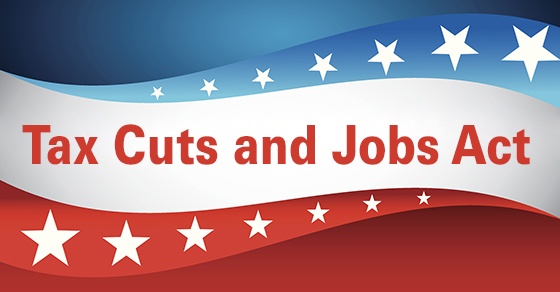How 5 Repealed Deductions in the Trump Tax Plan Could Negatively Affect your Small Business
Are you wondering how the Tax Cuts and Jobs Act, or Trump’s tax reform plan, could hurt your small business? Not sure which deductions you can no longer claim?
Although the new tax plan brings several new credits and increased deductions to incentivize things like investing in new equipment and providing family leave, Trump’s tax reform does remove some benefits and tax tools that small business owners have historically used across several industries.
With that in mind, it’s important to remember that each industry will be affected by changes to the tax code differently. Here are five repealed deductions that could negatively impact your small business.
1) Entertainment Expenses
If you’re in client services then you’re familiar with wining and dining a client. Despite the price, purchasing tickets to sporting events or meals at a nice restaurant are common. At the same time, it can often be the best way to attract new business and you could write it off come tax season.
Prior to the Tax Cuts and Job Act, business owners could deduct up to 50% of expenses they’d paid for business-related entertainment. This is no longer the case. The new tax plan does away with deductions for entertainment expenses entirely. The exception being that meals are 50% deductible.
Unfortunately, you will have to start purchasing these entertaining items on your own dime. Or drop them from their business plans entirely. One thing is for certain. Look for more entertainment vendors like ticket sellers or those in the golf industry to see a negative affect.
2) Business Interest Deduction
The business interest deduction was an important part of the prior tax code that helped out business owners who took out small business loans to cover relevant operating costs. The interest on those business loans would be deductible as an ordinary business expense.
While the business interest deduction wasn’t fully repealed in the Trump tax plan, it was significantly decreased, which might drive your taxes up from years past.
Under the Trump tax reform plan, the business interest deduction is cut to 30%. That’s a long way from before, when the business interest deduction wasn’t restricted at all. All in all, because of this repeal you’ll most likely see less of a tax refund.
This mostly impacts companies with a taxable profit. Small businesses that have a lot of recorded debt should take note of this change. The good news is if your small business has an annual average gross receipt of $25 million or less for the past three years, then you’re exempt from this rule.
3) Transportation Expenses
This one is pretty clear but you are most likely going to miss. Under the new Trump tax reform plan, you can no longer deduct the cost of providing certain commuter costs for your employees. Certain benefits like covering the costs of employee parking or providing assistance with public transportation may not be covered, depending on your type of business.
If you encourage your employees to go green/healthy by covering their biker commuting costs, then you’re not going to like this next sentence. Bicycle commuter reimbursements are now strictly prohibited under the new plan. This most likely hurts small businesses in suburban and urban areas who wish to hire millennials or employees dedicated to living a healthy life.
4) Deduction for Providing Employee Meals
Another employee perk that used to be deductible was employee meals. You used to be able to feed your staff and deduct 100% under the former tax code. That same food is now only 50% deductible.
This could potentially lower the morale of your current staff if you have to cut catered lunches or bagels every Friday. A widely used perk in recruiting new employees is providing meals, so you’ll have to decide whether to take the financial hit or potentially lose attracting new talent.


Hi, this is a comment.
To delete a comment, just log in and view the post's comments. There you will have the option to edit or delete them.